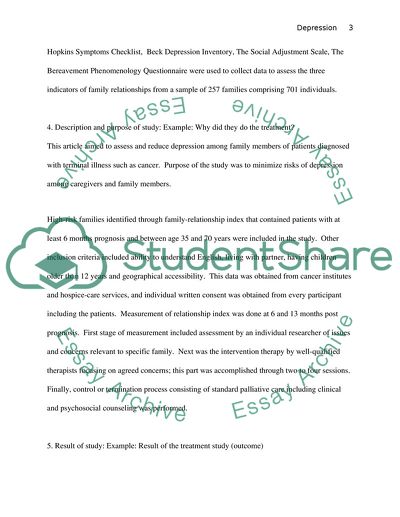Cite this document
(“Evidence based practice on depression Essay Example | Topics and Well Written Essays - 1250 words”, n.d.)
Retrieved from https://studentshare.org/psychology/1563403-evidenced-base-practice-on-depression
Retrieved from https://studentshare.org/psychology/1563403-evidenced-base-practice-on-depression
(Evidence Based Practice on Depression Essay Example | Topics and Well Written Essays - 1250 Words)
https://studentshare.org/psychology/1563403-evidenced-base-practice-on-depression.
https://studentshare.org/psychology/1563403-evidenced-base-practice-on-depression.
“Evidence Based Practice on Depression Essay Example | Topics and Well Written Essays - 1250 Words”, n.d. https://studentshare.org/psychology/1563403-evidenced-base-practice-on-depression.


